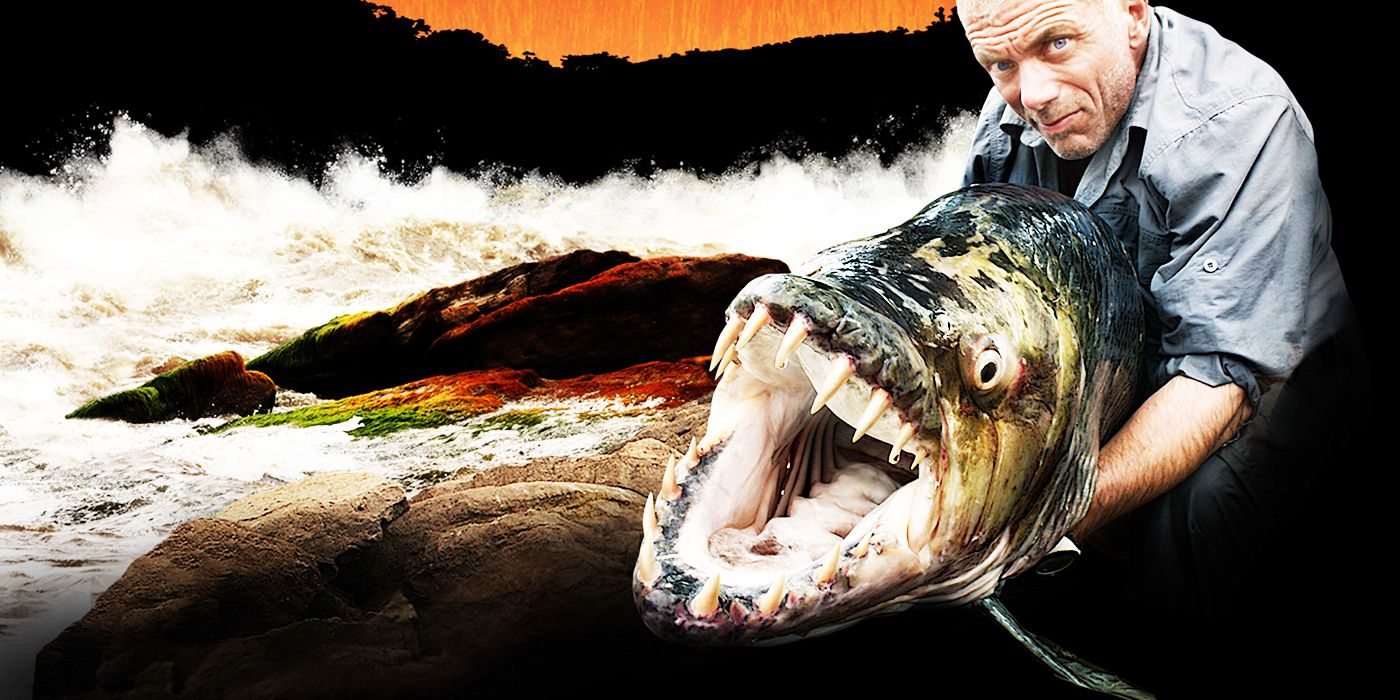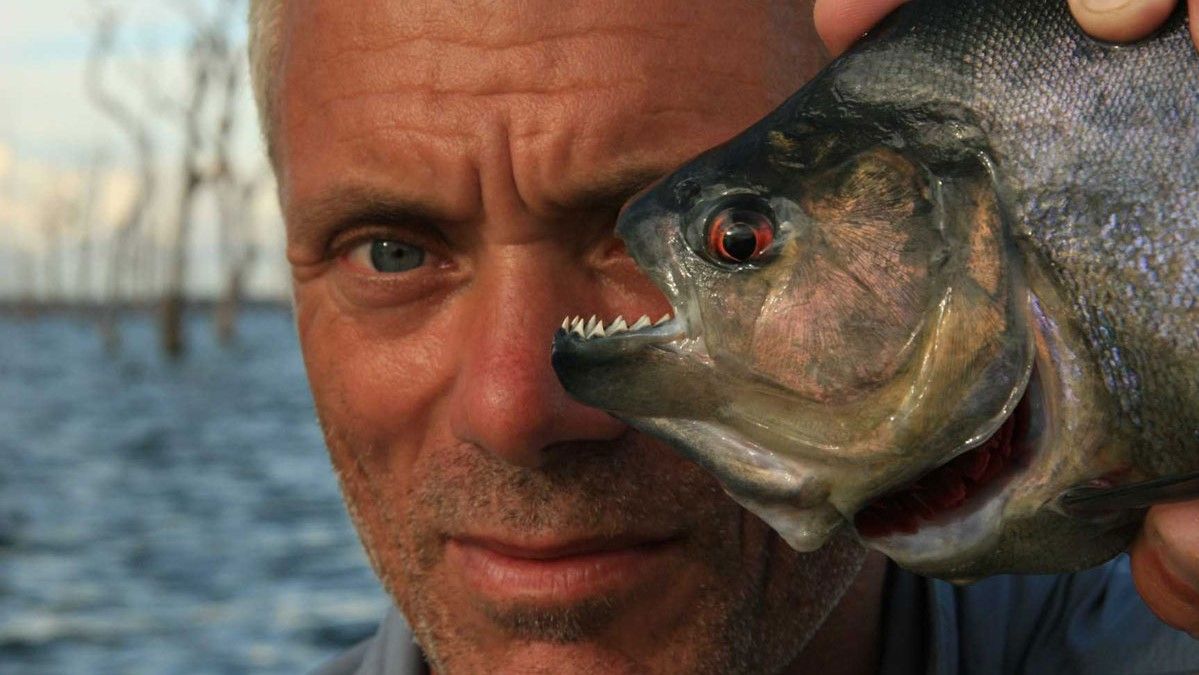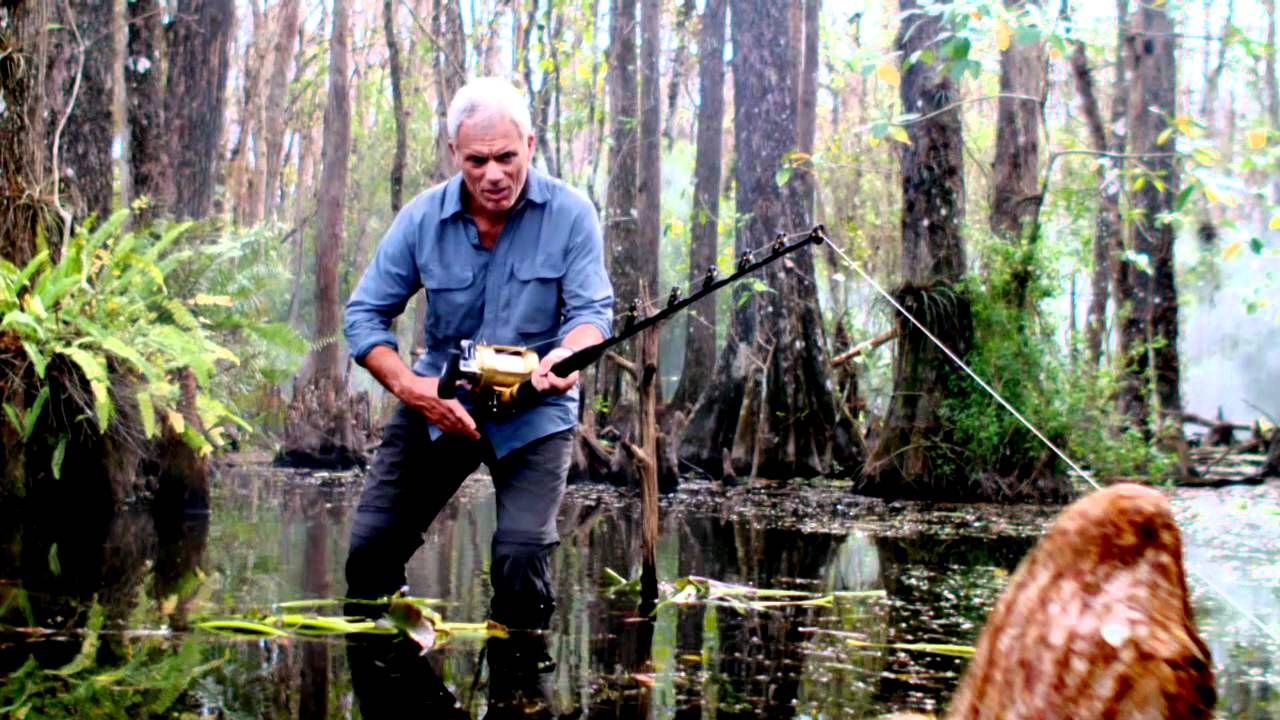Rare is it that a show centered entirely around the premise of fishing for rare fish and educating the audience in the process spills its appeal over into a sizable chunk of the mainstream television audience. Yet, back in 2009, the first ever episode of the near perfect catch 'em show released on Animal Planet, titled River Monsters. Hosted by biologist and extreme angler Jeremy Wade, the show probably never anticipated the widespread appeal it would have. Nor could it possibly predict that six years after it finished its final season, there would be a revival of interest due to a sub-genre of memes featuring Wade using some choice words to describe fish. The show ran for nine seasons and even re-released episodes with pop-up commentary from Wade on the stories behind the episodes deemed River Monsters: Unhooked. So why all the hype? What's so good about watching a guy fish, when the uninitiated viewer already imagines an inherent boredom present in the sport?
It's a Detective Show
One of the strongest cases for River Monsters as fish show supreme, is that it is possibly the only example of a fish detective show. In order to figure out where to find the monsters of the show, Jeremy Wade has to track down the origins of fish attack stories around the globe. This often involves interviewing witnesses, going over pieces of evidence such as photographs, and getting victim accounts, if there are survivors of an attack. The show uses this setup to shine a light on what could have really happened and provide Wade with a better idea on the locations of the fish in question and their habits. When a possible breed of fish is determined, Wade often gives information on the creature making the educational aspect of the show easily digestible and seemingly necessary for finding the fish perpetrator.
Setting the show up as a detective show allows the payoff to be greater and the stakes to be raised higher. After hearing a local tell a story about someone getting dragged into the depths, the want of finding whatever did it is only intensified. By the time Wade casts his first line, the audience is rooting for the evildoer to meet his match. Since many of the stories are true, albeit embellished by word of mouth transference, the stakes feel real. The audience isn't sure if the monster will be caught or not but the fact that it actually exists coupled with the other fish Jeremy Catches along the way is more than enough. Although, a majority of the episodes do end up providing some kind of acceptable resolution to the monster's identity and catch, making it all the sweeter.
It's Not Fish Tourism, Competition, or Cash for Catch
Not that there's anything wrong with enjoying a show where popular fishing spots are showcased, and idyllic coastlines are explored, but River Monsters' appeal comes from the unknown. Sure, here might be some locations that are popular and closer to what someone imagines when they are told so-and-so went on a fishing trip, but an appropriate balance is struck with the locations so far out of the way that wooden canoes and sparsely populated regions of the globe are where Jeremy Wade finds himself. It is an essential component of the show as the audience needs to be immersed in areas where these alleged river monsters are.
The same applies for the fish competition shows. There is an excitement in the competitive nature of the sport, but it is polarizing, and the narrative element is often lacking. The actual competitions have their audience in the enthusiasts and the hobbyists but not the meme lords that have been populating the internet with fish memes all from one show, River Monsters. The cash for fish shows, such as Wicked Tuna have some appeal as they show the harsh realities of commercial fishing but are lost on many new viewers. Perhaps the obvious dramatization of more mundane aspects of commercial fishing, or the thin family versus family narrative elements that seem copy and paste, nothing stands up to the actual excitement and investigative aspect of River Monsters. The only stakes that Jeremy Wade presents to the audience is finding the real reason behind some of the world's prevailing fish-related mysteries and myths. He doesn't even keep the "monsters" he catches, usually explaining the pertinent information about them before releasing them back into the wild. A true appreciator of the nature of fish and fishing, one famed poet of The Fish, Elizabeth Bishop, would be proud of.
Jeremy Wade Actually Catches the Monster
With a show like River Monsters, there has to be a payoff. After all, no one wants to watch a fishing show where the fish isn't caught. This explains much of the typical fishing shows use of exaggerated drama and hidden implications of the passage of time. There also should be some danger, as this is part of the successful fishing show formula (see Deadliest Catch). With River Monsters, Jeremy Wade interprets local myths and gruesome happenings with the disposition that he is going to find the monster responsible, and he often does. Wade essentially pushes the limits on how big a fish he catches every season, even finding his largest catch ever, a Mekong giant catfish weighing 600 pounds. When he doesn't catch the fish he's after initially, Wade is still reeling in absolute powerhouse fish, keeping the show delivering payoffs before the episode mystery is solved. Even this model may seem tiresome after repeated view until one sees it in action, such as the episode where he has multiple catches leading to hauling in an irradiated Catfish in one of Chernobyl's cooling pools.
One of the show's biggest strengths is the lack of reliance on fish legends that lean towards the paranormal. Shows that try and find the Loch Ness monster, or Bigfoot, or other cryptids have their own value for sure, but there is an unspoken agreement occurring between the viewer and the show itself. If any definitive proof of these creatures existed, it would be coming out of Anderson Cooper's mouth and made into a self-deprecating Twitter joke almost as fast as an internet sleuth would take to find a cancel worthy Facebook post by one of those that discovered said creature. In River Monsters, Jeremy Wade seeks out real life examples of unsuspecting people getting dragged into the depths and losing limb or life in the process. Mythological interpretations of the stories may come up in each episode, but that is guided by the locals who are explaining it to Jeremy. He investigates the stories to find the culprit. Remember, this is a detective show just as much as it is a fish show.
River Monsters shines because it brings together elements that appeal to so many viewers. It's a nature documentary, a detective series, a fishing show, and a treasure trove of meme templates. The host is experienced, and his knowledge provided onscreen (and let's be honest, the accent) gives that credibility lacking in other monster hunting shows. For an unexpected yet thoroughly entertaining trip into some of the most remote fishing areas on the planet, look no further than River Monsters.




